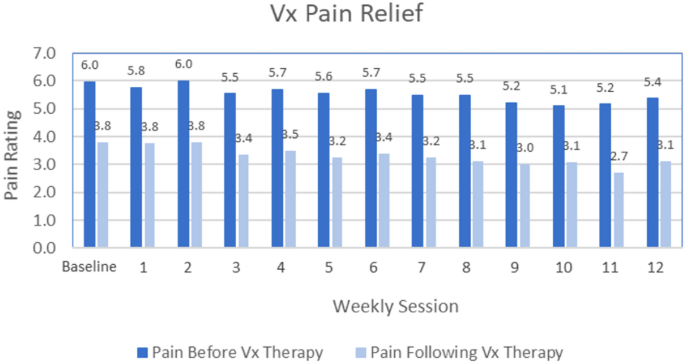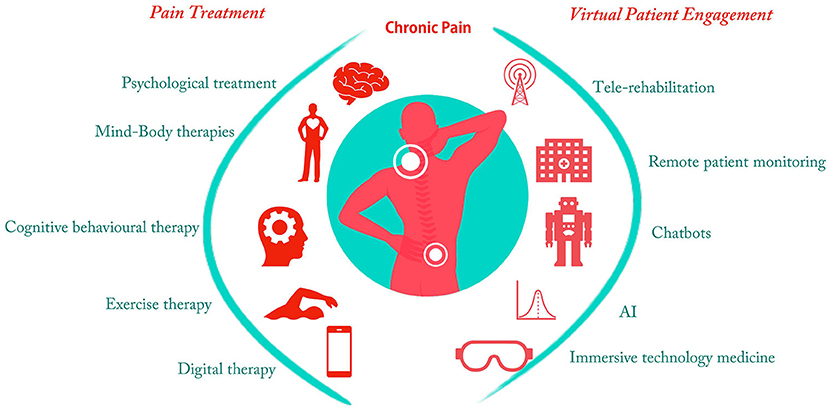
Virtual Reality in Pain Management: A Drug-Free Alternative
Virtual reality is transforming pain management with drug-free solutions.Imagine putting on a headset and suddenly finding yourself on a serene beach, the sound of waves gently lapping at the shore. As you look around, taking in the beautiful scenery, you realize something remarkable – your chronic back pain has faded into the background. This isn't science fiction; it's the reality of virtual reality (VR) in pain management, a groundbreaking approach that's transforming how we treat pain in healthcare settings.
The Promise of VR in Pain Management
Virtual reality technology is emerging as a powerful tool in the fight against both acute and chronic pain. As someone who's spent years studying and implementing VR solutions in clinical settings, I've seen firsthand how this technology can provide relief where traditional methods have failed. VR offers a drug-free alternative that's particularly appealing in light of the ongoing opioid crisis.
How VR Works to Alleviate Pain
At its core, VR pain management leverages the brain's incredible ability to adapt and respond to sensory input. When a patient is immersed in a virtual environment, their brain is flooded with visual, auditory, and sometimes even tactile stimuli. This sensory overload effectively "distracts" the brain from processing pain signals.
But it's more than just distraction. VR can actually rewire how the brain perceives pain through neuroplasticity. In my experience, patients who regularly use VR for pain management often report lasting effects even after removing the headset. It's as if their brains have learned a new way to interpret and respond to pain signals.

Types of Pain Addressed by VR
Virtual reality has shown promise in treating a wide range of pain conditions:
- Chronic pain: Conditions like fibromyalgia, neuropathic pain, and lower back pain
- Acute pain: Used during wound care, physical therapy, and even childbirth
- Procedural pain: Helping patients cope with pain during medical procedures
- Phantom limb pain: Providing relief for amputees experiencing pain in missing limbs
The VR Pain Management Experience
When a patient puts on a VR headset for pain management, they're typically transported to a calming environment designed to promote relaxation and pain relief. Some programs use guided meditation techniques, while others employ gamification to engage patients in activities that take their mind off the pain.
I once visited a VR pain clinic where I saw a patient with chronic arthritis playing a virtual game that required her to use her hands to catch butterflies. Not only was she distracted from her pain, but the gentle movements were actually providing a form of physical therapy.
Advantages Over Traditional Pain Management
The beauty of VR pain management lies in its non-invasive, drug-free nature. Unlike opioids, there's no risk of addiction or harmful side effects. It's also highly customizable – we can tailor the virtual environments to each patient's preferences and needs.
Case Studies and Research
Research in this field is incredibly promising. A study at Cedars-Sinai Medical Center found that patients using VR reported a 24% reduction in pain scores compared to those watching television. Another study focusing on burn victims showed that VR was more effective than opioids in reducing pain during wound care procedures.
I've personally worked with a patient who suffered from debilitating chronic back pain for years. After just a few weeks of regular VR therapy sessions, she reported a 50% reduction in her pain levels and was able to reduce her opioid medication.
Challenges and Limitations
Of course, VR isn't a magic bullet. Some patients experience motion sickness or discomfort when using the headsets. There are also questions about long-term efficacy and accessibility, especially for older patients or those in rural areas.

The Future of VR in Pain Management
As technology advances, we're likely to see even more sophisticated VR pain management solutions. Imagine VR systems that can read a patient's biometrics in real-time and adjust the virtual environment accordingly. Or VR combined with AI to provide personalized pain management programs.
Broader Implications
The widespread adoption of VR in pain management could have far-reaching effects on healthcare. It has the potential to significantly reduce our reliance on opioids, transforming how we approach pain treatment. As one of my colleagues likes to say, "We're not just changing how we treat pain; we're changing how patients experience it."
In conclusion, virtual reality represents a paradigm shift in pain management. It's a testament to the power of technology to improve lives in ways we never thought possible. As we continue to explore and refine this technology, we may be looking at a future where chronic pain is no longer a life sentence, but a manageable condition. The matrix of pain management is being rewritten, and VR is holding the pen.
References
- https://www.ncbi.nlm.nih.gov/pmc/articles/PMC3138477/
- https://www.travancoreanalytics.com/virtual-reality-for-pain-management/
- https://www.mdpi.com/2227-9032/10/10/2047
- https://www.innovation.va.gov/hil/assets/documents/va-immersive-lit-review-2024.pdf
- https://www.nytimes.com/2022/04/26/magazine/virtual-reality-chronic-pain.html
- https://www.techtarget.com/virtualhealthcare/feature/Using-Healthcare-VR-Technology-to-Improve-Pain-Management
- https://www.frontiersin.org/journals/medicine/articles/10.3389/fmed.2023.1203670/full
Personalized Nutrition: How DNA Testing is Changing Our Diets






Comments
This is such an innovative approach to pain management. I’d love to see more studies on the effectiveness of VR in reducing pain and improving patients’ quality of life.
I’m impressed with how technology is being integrated into healthcare. Virtual reality for pain management could be especially beneficial for chronic pain sufferers.
The idea of managing pain without drugs using VR is intriguing. This could be a safe alternative for those who want to avoid the side effects of pain medication.
I’ve heard about VR being used in therapy, but using it for pain management is new to me. Has anyone here actually tried this? I’m curious about the results.
Virtual reality as a pain management tool is fascinating! I’ve read about how it can help patients focus on something other than their pain, providing relief without medication. This could be a game changer.
Leave a Comment